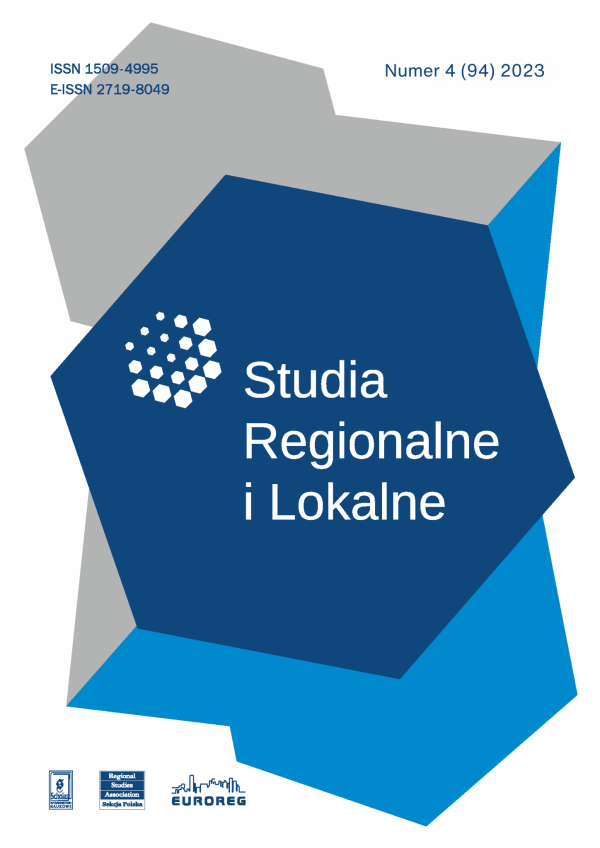Issue:
4(94)/2023
Tomasz Kupiec, Dorota Celińska-Janowicz
Public Interventions Evaluation Practice in Cities with County Status
DOI: 10.7366/1509499549405
Praktyka ewaluacji interwencji publicznych w miastach na prawach powiatu
Ewaluacja jest istotnym elementem cyklu polityk publicznych, dostarczającym informacji na potrzeby poprawy efektywności polityk wdrażanych i projektowania przyszłych. W Polsce od co najmniej 15 lat mówi się o potrzebie dyfuzji tej praktyki z pola funduszy strukturalnych do innych obszarów działania państwa. Choć jednym z takich oczywistych kierunków dyfuzji jest samorząd lokalny, to o ewaluacji na tym szczeblu wiadomo bardzo niewiele, a w opracowaniach podsumowujących praktykę ewaluacji w Polsce wątek ten jest w ogóle pomijany. Celem tego badania były oszacowanie skali i charakterystyka praktyk ewaluacji w okresie 2010–2021 w miastach na prawach powiatu. Analizy oparto na udostępnionych przez urzędy miast informacjach o przeprowadzonych badaniach ewaluacyjnych. Z 55 miast, które udało się objąć analizą, 62% realizowało ewaluację i w sumie zrealizowało 469 badań. Zaobserwowano także systematyczny wzrost liczby badań oraz liczby miast je realizujących. Wśród dominujących obszarów tematycznych znalazły się budżet obywatelski, polityka społeczna oraz strategia rozwoju. Zbliżone okazały się udziały badań realizowanych wewnętrznie i zlecanych firmom zewnętrznym. Badania procesów wdrażania interwencji dominują natomiast nad ewaluacjami efektów interwencji. Niniejsze badanie może stanowić punkt wyjścia do dalszych, bardziej szczegółowych analiz organizacji procesu ewaluacji i jej wykorzystania w samorządzie lokalnym.
Public Interventions Evaluation Practice in Cities with County Status
Evaluation is an important element of the public policy cycle, providing information for improving the effectiveness of implemented policies and designing future ones. In Poland, the need for the diffusion of this practice from the field of structural funds to other public policy fields has been discussed for at least 15 years. Although one such obvious direction of diffusion is local government, very little is known about evaluation at this level, and in studies summarising the general evaluation practice in Poland, this strand is omitted. The aim of this study was to assess the extent and characteristics of evaluation practices in the period 2010–2021 in cities with county [Pol. powiat] status. The analysis was based on the information on evaluation studies provided by city halls. Out of the 55 cities that were included in the analysis, 62% carried out evaluations and they completed a total of 469 studies. A systematic increase in the number of studies and the number of cities carrying them out was also observed. The dominant thematic areas were civic budgeting, social policy, and development strategy. The shares of studies carried out internally and those commissioned from external companies turned out to be similar. In contrast, studies of intervention implementation processes dominate over evaluations of intervention effects. This research can serve as a starting point for further, more detailed analyses of the organisation of the evaluation process and its use in local government.
Affiliation:
Tomasz Kupiec: Uniwersytet Warszawski, Centrum Europejskich Studiów Regionalnych i Lokalnych (EUROREG), ul. Krakowskie Przedmieście 30, 00-927 Warszawa, Polska; ORCID: 0000-0002-6469-7746;
tomasz.kupiec@uw.edu.pl Dorota Celińska-Janowicz: Uniwersytet Warszawski, Centrum Europejskich Studiów Regionalnych i Lokalnych (EUROREG), ul. Krakowskie Przedmieście 30, 00-927 Warszawa, Polska; Vrije Universiteit Brussel, Brussels Institute for Social and Population Studies (BRISPO), Pleinlaan 2, 1050 Bruksela, Belgia; ORCID: 0000-0002-0101-7475;
d.celinska@uw.edu.pl 


